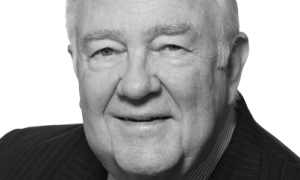After 22 hours of testimony before the Senate Judiciary Committee, Americans have seen a lot of chief justice nominee John Roberts. He was asked more than 500 questions -- some seemed more like speeches -- by 18 different senators about topics ranging from privacy law to court administration to his private life. By the end of the hearing, one thing was clear: John Roberts is a true conservative and a brilliant attorney whose service on the high court will be a lasting monument to President Bush. Consequently, the committee voted 13-5 yesterday to send his nomination as chief justice to the full Senate.
Despite some senators' intense efforts to elicit "campaign promises" about specific past cases and current issues, Judge Roberts took the high road throughout his hearing. He refused to violate judicial ethics by prejudging numerous "hypothetical" scenarios or by committing to uphold or overturn prior high-court decisions. These actions reveal a deep respect for the rule of law and for the proper role of judges in a democratic society.
Even while maintaining appropriate judicial ethics, Judge Roberts was more forthcoming than any nominee to the high court in recent memory. He ably demonstrated he is devoted to faithfully interpreting and applying the Constitution and laws as they were written. Some justices look at the law as if it were a crystal ball, seeing whatever they want to see in its "emanations" and "penumbras." John Roberts will not be that kind of justice.
Judge Roberts told the senators he is "acutely aware of the fact that millions and millions of people have voted for you," while no one votes for federal judges. "Judges have to decide hard questions when they come up in the context of a particular case. ... But they have to decide those questions according to the rule of law -- not their own social preferences, not their policy views, not their personal preferences."
Over the last half-century, some political activists who have failed to convince a majority of Americans to support their causes have turned away from democratic institutions and embraced the judiciary. They claim judges should act as a kind of "super legislature" or continuous Constitutional Convention, changing the law according to their whim. Such actions turn the rule of law into simply the rule of judges, in effect disenfranchising every American voter. Judge Roberts will help to halt this corrosive trend. As he explained to the senators, "the role of the judge is limited; the judge is to decide the cases before them... not to legislate."
Judge Roberts also indicated he would firmly oppose the movement -- aggressively supported by several current justices -- to look to foreign law as a guide to interpreting our own Constitution. This use of foreign law, Judge Roberts pointed out, "allows the judge to incorporate his or her own personal preferences, cloak them with the authority of precedent -- because they're finding precedent in foreign law -- and use that to determine the meaning of the Constitution."
In answers to other questions, he revealed a great respect for the different institutions that comprise our government. For example, Judge Roberts was asked over and over about what rights individuals should have to sue government agencies and private businesses under the Americans With Disabilities Act. Watching these questions, one could almost forget Congress wrote and passed that law. If Congress had made it clear who can sue, the issue would never reach a judge in the first place.
Judge Roberts told the Senate Judiciary Committee judicial robes are not "a license to go out and decide, 'I think this is an injustice and so I'm going to do something to fix it.' ... Such judicial activism is inconsistent with the role the Framers intended." That both the Supreme Court and the country need Judge Roberts' devotion to the original meaning of the Constitution and laws was made clear when -- during the Judiciary Committee hearing -- yet another federal judge struck down the Pledge of Allegiance because of the words "under God."
A new term of the Supreme Court begins Oct. 3. As the marshal intones, "God save the United States and this Honorable Court," Americans can be thankful President Bush kept his promise and appointed John Roberts, a principled conservative jurist, to preside over our federal courts.
Edwin Meese III is a fellow at The Heritage Foundation and holds its Ronald Reagan Chair in Public Policy. He served as attorney general under President Reagan. This commentary was adapted exclusively for the Trib from remarks Mr. Meese delivered last month in Washington.
First appeared in The Washington Times



